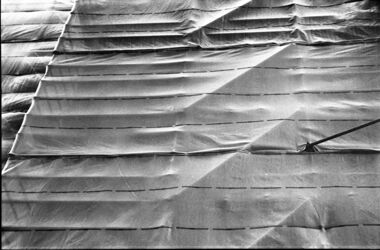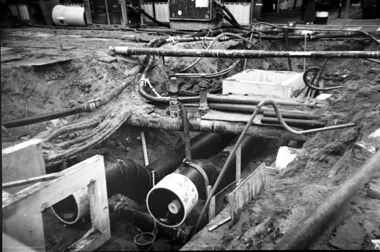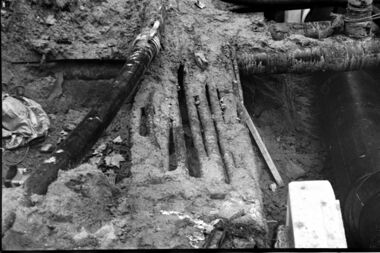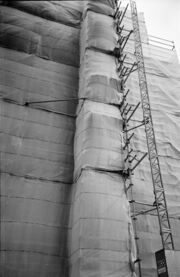User:Trashpuppy/Bloody Body of Building: Difference between revisions
Trashpuppy (talk | contribs) No edit summary |
Trashpuppy (talk | contribs) No edit summary |
||
| Line 32: | Line 32: | ||
[[File:Img20201106 13271142.jpg|380px|centre]] | [[File:Img20201106 13271142.jpg|380px|centre]] | ||
<br> | |||
<br> | <br> | ||
[[File:Img20201106 13511142.jpg|380px|left]] | [[File:Img20201106 13511142.jpg|380px|left]] | ||
[[File:Spine.jpg|180px| | [[File:Spine.jpg|180px|center]] | ||
Revision as of 10:43, 11 February 2021
RETRACING STEPS
The previous project I worked on,
COBBLED AND CURSED - an artist book composed of free verse poetry and photography, started from the notion that a work of literature is a piece of architecture. Equally with a heart and spine. With corridors that lead into one another and windows opening up onto the outside. The book was closely connected to embodiment and memory. Both artificial and constructed memory remembered with equal clarity. In this way, what I erected between the walls of the cover was a bloody building of body. A map of the dusty attic of a brain.
So, while perceiving literature as a building, a construct, I also perceive the body as such. Not only in the sense that I perceive architecture as an apt metaphor for our bodies. It goes a bit beyond this.
Upon moving to Rotterdam I was overwhelmed by the amount of construction happening around me. The speed at which the urban formula was stamped out of the ground. One day the street was all broken up. The pavement torn open to show a multitude of tubes all tangled in dirt. The next day there was no trace. Everything was neatly patched up again. It made me think of surgery, the soft tissue and bones poking out, exposed. With the difference that the human skin is less reptilian. Past traces much more visible than on the city as a palimpsest (Teju Cole - Open City). Aside from the fact that I was somewhat astounded by the speed and invisibility (in some of the cases, in the contrary to the high buildings erected) of these altercations, it also felt extremely violent to me but it was home in me.
Malte in Rilke's The Notebooks of Malte Laurids Brigge (1910) walks through Paris and comes across a building with it's back ripped off.
I recognise everything here, and that's why it goes right through me: it is at home in me" (p. 48)
To me, there is a link between construction sites and the construction and de-construction of the human body. The element of violence, the giving brith to something and in the process killing off possibilities.




